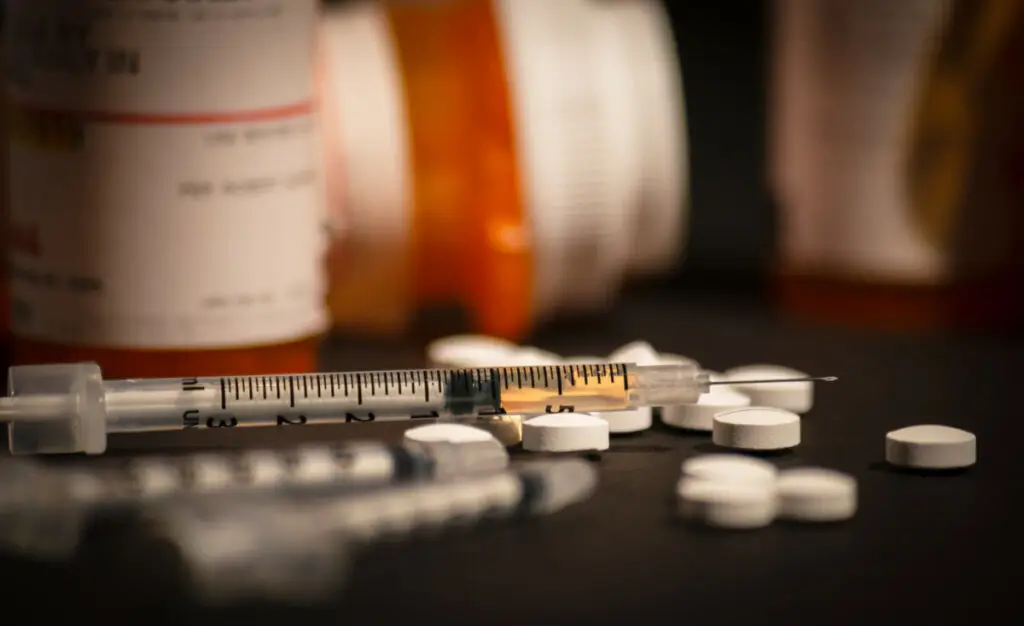SALEM, Ore. (BP) – Oregon will become the first state in the nation to decriminalize possession of small amounts of drugs including Oxycodone, cocaine, heroin and methamphetamine beginning in February 2021.
Voters approved the measure on Election Day by a margin of 58.6-41.4 percent and concurrently approved by 66.7-33.3 percent a new tax on tobacco and E-cigarettes to fund treatment programs in place of incarceration for drug users. Several other states passed measures legalizing only marijuana.
Voters in several other states passed measures legalizing marijuana. And several states saw gambling measures approved. Southern Baptist Ethics & Religious Liberty Commission executive Travis Wussow said the changes in the “predatory drug and gambling industries” are alarming.
“These industries exploit our neighbors who are poor, vulnerable and addicted. They deceptively extract money from communities that are already under-resourced, leaving strained relationships and broken homes in their wake,” Wussow said. “Pastors and church leaders must see this challenge for what it is and be ready to step into the gap for their communities and oppose the expansion of these industries in their states.”
Randy Adams, executive director and treasurer of the Northwest Baptist Convention, believes Oregon’s drug decriminalization measure will increase addiction, leading to “serious health and family problems, among other things.”
“We can expect that drug decriminalization will create a need for further taxation to deal with the fallout from increased drug use,” he said. “It is quite ironic that Oregon’s tax on tobacco is intended to provide health services for prevention and cessation programs for tobacco and nicotine related diseases.”
Southern Baptists comprise a small portion of voters in the state that has fewer than 150 Southern Baptist churches and missions, according to the Annual Church Profile.
“In some states, Baptists are a significant voting bloc and thus wield significant political influence. We do not have that kind of influence in Oregon and Washington,” Adams said. “The focus of our convention and our churches is to lead people to Jesus as He is the only source for what people want most, joy and peace, as well as the only means to make one right with God for all of eternity. Increasingly, in the Northwest and elsewhere, believers shine like stars against the backdrop of an ever-darkening culture.”
Marijuana legalization measures passed in Arizona, Montana, New Jersey and South Dakota. Arizona Proposition 207, approved by 59.8 percent of voters, legalizes the substance for people at least 21 years old, places a 16 percent tax on marijuana sales and requires the Arizona Department of Health and Human Services to write rules regulating marijuana businesses. Arizonans approved medical marijuana in 2010 but last opposed recreational use in 2016 with just 51.3 percent of the vote, according to Ballotpedia.com. Republican Gov. Doug Ducey opposed the measure both years.
Montana legalized, with 56.7 percent of the vote, the possession and use of marijuana for persons at least 21 years old and approved a 21 percent tax on marijuana sales. The measure takes effect Jan. 1, 2021, according to the Montana Secretary of State’s office. Medical marijuana has been legal in the state since 2004.
New Jersey legalized the possession and use of marijuana for persons age 21 and older and legalized the retail sale of marijuana. The measure, New Jersey Public Question 1 passed by 66.9 percent of voters with just 63 percent of precincts reporting, and takes effect Jan. 1, 2021.
South Dakota approved both recreational and medical marijuana use. Constitutional Amendment A received 53.4 percent of the vote to legalize recreational use of marijuana and simultaneously require the South Dakota State Legislature to pass laws providing for the use of medical marijuana and the sale of hemp by April 1, 2022, according to the amendment. A companion initiative, Initiated Measure 26, which was approved by 69 percent of voters, orders the creation by October 2021 of a medical marijuana program for people with debilitating medical conditions.
Regarding gaming and gambling, voters approved measures in Colorado, Maryland, Nebraska and South Dakota, including racetrack betting, gaming, sports betting and charitable bingo and raffles.
This article was originally published by Baptist Press at baptistpress.com

